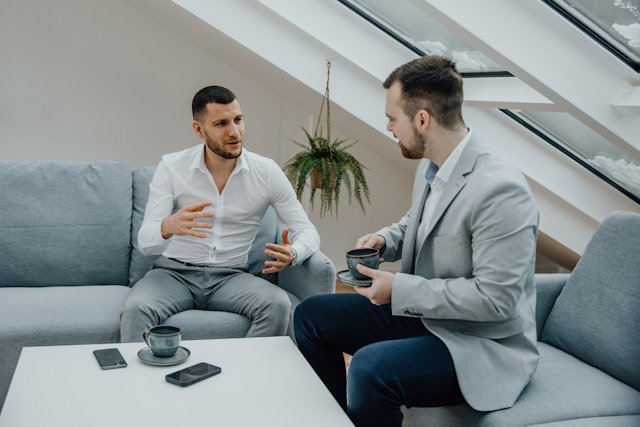If you’re reading this, there’s a good chance your adult child is struggling—and you’re the one trying to hold it all together. You’ve watched the changes: the anxiety, the withdrawal, the erratic behavior, maybe even a relapse. You’ve done what you could, and probably more than you should have had to. But the question lingers: What will actually help them stabilize?
For many families, a partial hospitalization program (PHP) is the answer that finally bridges the gap between crisis and recovery. It’s more intensive than outpatient care but doesn’t require full-time residential treatment. At Archway Behavioral Health in Boca Raton, Florida, PHP is where a lot of young adults find their footing again—and where many parents finally exhale.
What Is a Partial Hospitalization Program?
A partial hospitalization program is a short-term, intensive level of treatment for people who need more support than weekly therapy but don’t require 24/7 residential care. Clients attend treatment five to six days a week, often for 5 to 6 hours a day.
This structure helps stabilize symptoms—whether related to addiction, mental health, or both—while still allowing your child to live at home or in a supportive living environment. It’s designed to reduce chaos and help someone begin functioning again with professional support close by.
At Archway, PHP offers:
- A calm, structured environment
- Access to medical and psychiatric care
- Evidence-based therapy tailored to young adults
- Emotional support that meets people where they are
This isn’t a “second chance” in the punitive sense. It’s a real opportunity to pause, regroup, and heal—with dignity and care.
What Does a Day in PHP Look Like?
Young adults often resist structure, especially when they’re spiraling. But in PHP, structure isn’t about control—it’s about relief. It removes the guesswork from the day and replaces it with support.
Here’s what a day in our PHP might include:
Morning Check-In & Psychoeducation
Each day begins with a small-group check-in led by a licensed clinician. Clients reflect on how they’re feeling, share challenges, and set intentions. This sets the tone for a grounded, emotionally present day.
Group Therapy
Throughout the day, clients participate in multiple group therapy sessions covering:
- Emotional regulation and mindfulness
- Relapse prevention and coping skills
- Trauma-informed education
- Identity, shame, and family dynamics
Individual Therapy
Each client is paired with a dedicated therapist. They meet at least once per week (often more), giving space to work through trauma, anxiety, depression, or grief. For many, it’s the first time they feel heard without being judged or rushed.
Psychiatric Support
If medication is part of the care plan, clients meet with our psychiatric provider for evaluation, monitoring, and adjustments. We work collaboratively—always explaining, never pushing.
Experiential Therapies
Recovery isn’t just about talking. Our PHP includes expressive therapies such as art, yoga, or movement. These help young adults reconnect to their bodies and reduce emotional overwhelm.
How Does PHP Actually Help Someone Stabilize?
Stabilization isn’t a one-time event—it’s a process. For a young adult in crisis, it often looks like:
- Getting out of fight-or-flight mode: Daily therapy and routine help regulate the nervous system.
- Reconnecting with reality: Sleep improves, meals are regular, and they start to show up for themselves again.
- Practicing honesty without shame: The therapeutic space creates safety to tell the truth about what’s really going on.
- Disrupting relapse cycles: With daily accountability and skill-building, the pull of old patterns weakens.
Stabilization doesn’t mean your child is “cured”—but it often means they’re finally ready to start the deeper work of healing.
Is PHP the Right Fit for My Child?
Every situation is different. But here are some signs that PHP may be a good fit:
- They’ve just left residential treatment and need a step-down level of care
- Outpatient therapy hasn’t been enough to manage symptoms or substance use
- They’ve relapsed and need help quickly—but don’t require hospitalization
- They’re struggling with motivation, isolation, or emotional regulation
- You’re feeling scared and unsure how to keep them safe at home
At Archway, we conduct a thorough clinical assessment before admission to make sure PHP is the right level of care. If it’s not, we’ll help guide you toward the next best step.
Why Choose Archway’s PHP in Boca Raton?
There’s no shortage of treatment programs—but not all of them are built with young adults and their families in mind.
At Archway Behavioral Health, our partial hospitalization program offers:
- Age-appropriate care: We understand the unique developmental and emotional needs of young adults.
- Dual diagnosis expertise: Many of our clients deal with both substance use and mental health issues. We treat both, not just one or the other.
- Compassionate clinicians: Our staff are not just licensed—they’re genuinely invested. Many have walked their own path to recovery.
- Family involvement: Healing doesn’t happen in a vacuum. We offer family therapy and regular updates so you’re part of the process, not left guessing.
Located in Boca Raton, Florida, we’re close enough for South Florida families to stay involved—but far enough for young adults to start fresh in a peaceful, recovery-focused setting.
Frequently Asked Questions About Partial Hospitalization Programs
How long does PHP usually last?
Most PHP stays range from 2 to 6 weeks, depending on clinical needs. Some stay longer, others transition more quickly to outpatient care.
Can my child live at home during PHP?
Yes. Clients in PHP return home each evening. If home isn’t a supportive or safe environment, we can help explore sober living options nearby.
Is PHP covered by insurance?
In many cases, yes. We work with most major insurance plans and offer a verification process so you understand what’s covered before treatment begins.
What if my child refuses to attend?
We know this is heartbreaking. Sometimes a firm boundary and a united front from loved ones can shift the conversation. We’re happy to speak with you about how to navigate resistance.
What’s the difference between PHP and IOP?
Both are outpatient programs, but PHP involves more hours per week (typically 25–30 hours vs. IOP’s 9–15). PHP is better suited for stabilization, while IOP is often a next step.
📞 Talk to Someone Who Understands
If you’re wondering whether PHP might be right for your child, we’re here to help you figure it out. Call (888) 488-4103 or visit our partial hospitalization program page to get started. You don’t have to solve this alone—and neither does your child.



